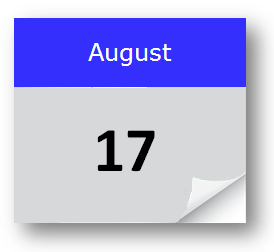In 1960 Gabon gains its independence from France.
The earliest settlers in Gabon that we know of were the ancient Bantu people; a tribe of early explorers that originated in central Africa and spread out east, west and south across the continent encompassing almost the entire southern half of Africa. Archaeological evidence of the Bantu people can be found in the form of Stone Age axes from around 500 BC. It is believed that the first settlers may have been pigmies but there is no physical evidence of this.
In the 15th century Portuguese King John II sent explorer Diogo Cam to the West African coast on a voyage of discovery. One of the many lands he discovered was the estuary of the Komo River which they believed resembled the shape of a cloak. They named it the Gabao, which is Portuguese for cloak and this name, was later given to the entire country. In 1593 the Dutch visited the country followed by the French some 35 years later. The first trade between the natives and Europeans was that of tobacco, and cloth but by the late 18th Century the main trade had become slavery. Africans were kidnapped from deep within Gabon and the surrounding area by slavers and then bound and sailed down the river to the estuary. The mouth of the river was a huge slave market were European s such as the British, French and Dutch would purchase them, mainly for work in the America’s.
By the 1800’s both France and Britain had begun to change their policy on slavery. On the 4th of February 1794 the French Revolutionaries passed a law banning slavery in France and all its colonies. Napoleon Bonaparte revoked the law eight years later on the 20th of May 1802 in many of the colonies in the westbut it was completely outlawed in all their colonies by the 27th of April 1848. The United Kingdom abolished the slave trade throughout the empire on the 25th of March 1807 which came into effect in 1808. In 1833 the Slavery Abolition Act banned slavery giving freedom to all previously bought slaves within the British Empire. After the final defeat of Napoleon in 1815 both the Royal Navy and the French Navy began to actively patrol the western coast of Africa in order to prevent the continuation of the slave trade.
Through treaties signed in 1839 and 1841 with French diplomats and leaders in Gabon, France became a protectorate of the country. Despite the actions of the two Navies many people attempted to smuggle slaves out of Africa. In 1849 one such ship was boarded by the French Navy and the slaves freed. These slaves were released in an area they named “Libreville” (French for free town) which has become the capital city of Gabon.
France had also acquired other territories in Africa including Middle Congo (now the Republic of the Congo), Oubangui-Chari (now the Central African Republic) and Chad. On the 15th of January 1910 France incorporated these countries and Gabon into French Equatorial Africa (or Afrique Equatoriale Francaise (AEF)). These countries played a pivotal role for the Free French forces during World War II.
By the end of Word War II the Anti-Colonial Movement in France was at full force and on the 27th of October 1946 the French Fourth Republic changed the constitution which changed all colonies of the French Empire into the French Union. In the French overseas territory of Algeria the majority of the population were looking towards complete Independence from France and on the 1st of November 1954 war broke out between the National Liberation Front and French Forces. But independence was not wanted by the entire population and in 1958 approximately 1 million of the countries 9 million inhabitants marched in the capital city, Algiers, against independence form France. General Charles de Galle was recalled to power and he dealt with the situation by ordering a referendum be held in all the countries of the French Union. On the 28th of September 1958 all the countries of France voted for a change to the constitution. It gave all overseas territories until the 4th of February 1959 to choose one of three options:-
- To remain a French Overseas Territory (Governed by elected localised group assemblies)
- To become a member state of the French Community
- Become an Overseas Department
Gabon chose to become a Member State of the French Community and on the 4th of June 1960 new changes to the constitution gave Member States the right to full independence. On the 17th of August 1960 Gabon became fully independent from France (the last member of French Equatorial Africa to do so).
